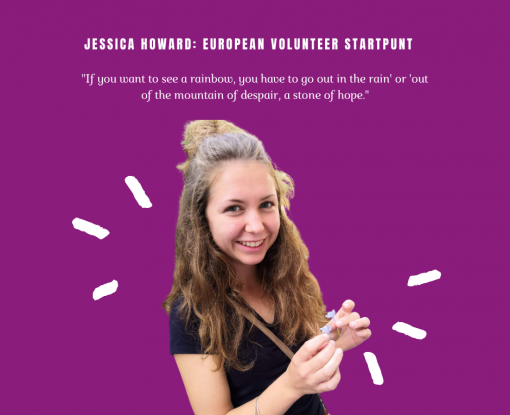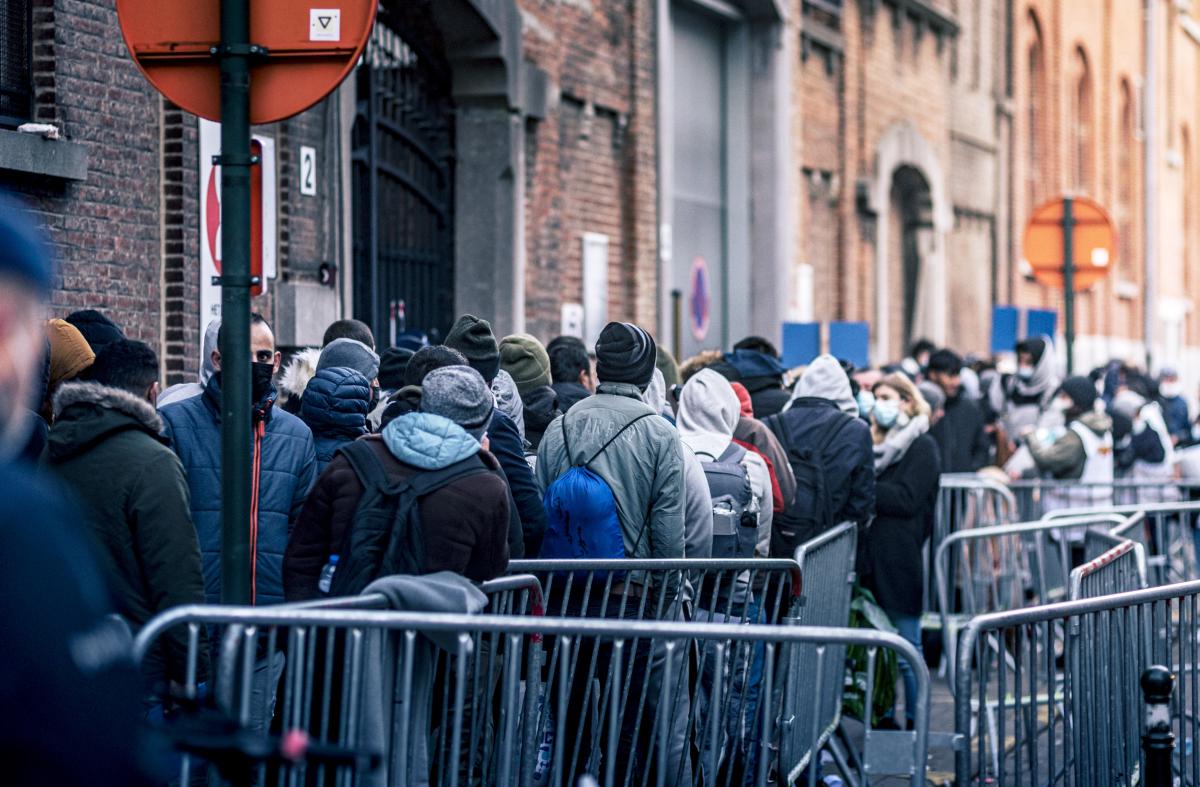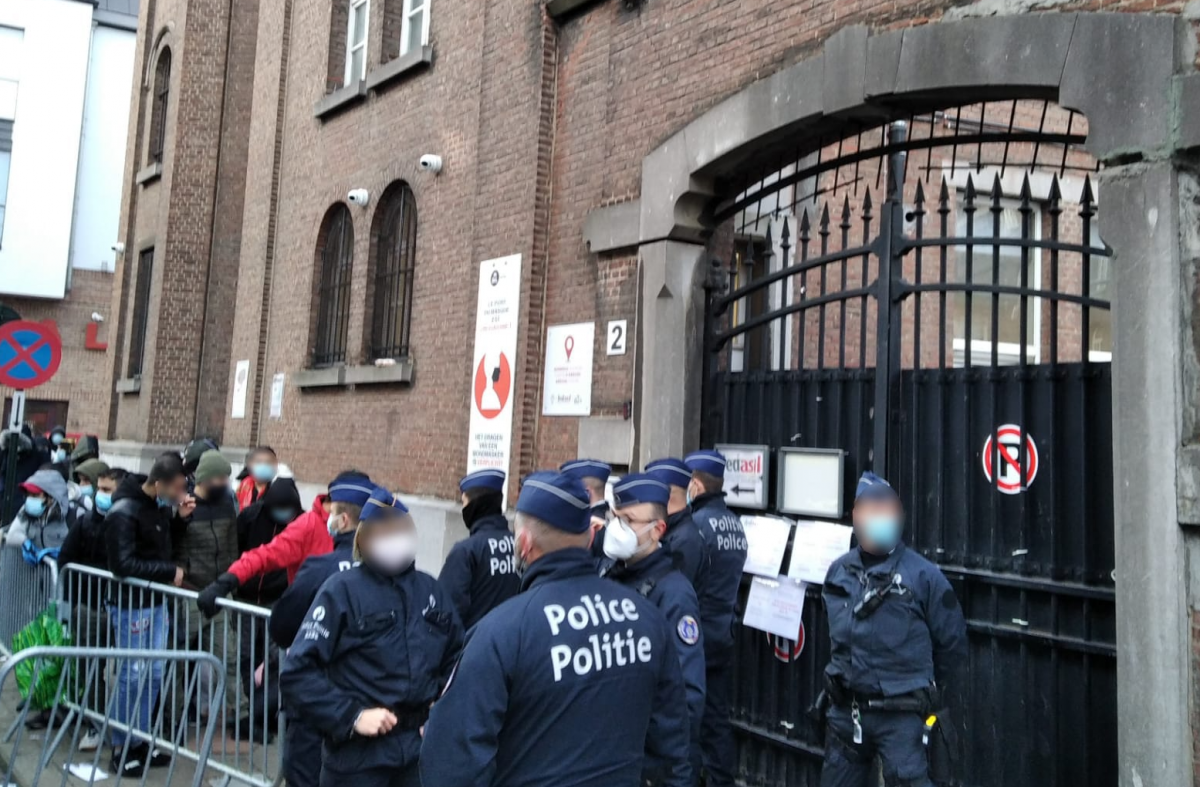Blog 1: My first two weeks in Belgium

In August, I finished my masters, in refugee and migration law and policy, and started looking for a new project to embark on. Knowing that the Irish NGO circuit was small and that it would not be easy to find a job working with refugees straight out of university, I started looking for traineeships in other European countries. At the same time, I decided to take a look at the European Solidarity Corps platform. I had known about the platform for some time, but was hesitant to look there as I thought it only offered non-professional short term projects. Nonetheless, the second time I scanned through the list of available projects (of which there were more than 300), I was pleasantly surprised to see what, at first glance, looked like a perfect the position at Vluchtelingenwerk Vlaanderen.
Up until that moment I really believed that while applying my first job, I would have to choose between working directly with people or using the knowledge I had gained at university to do desk-based research. Working with the Starpunt team providing legal information to asylum seekers allows me to do both and as such I was very excited when I was offered the position a few weeks later!
"On my first day in Brussels, I was told that that Belgium was in the middle of a ‘reception crisis’ but a part of me did not believe my colleagues when they attempted to describe how bad the situation was"
Before arriving in Brussels, I did not know a lot about claiming asylum in Belgium. I had studied the Common European Asylum System in university and, even though, I knew that it was an imperfect system, I believed that it held a lot of potential and that countries such as Belgium demonstrated how successful this system could be. I also believed that adopting all aspects of the European Common System would lead to better reception conditions in Ireland, however, after two weeks of working in Brussels, I am dubious.

On my first day in Brussels, I was told that that Belgium was in the middle of a ‘reception crisis’ but a part of me did not believe my colleagues when they attempted to describe how bad the situation was.
Despite all the warnings, I was not fully prepared to see the lines of people waiting outside the arrival centre at the Klein Kasteeltje. Despite the long lines, I was excited to start talking to people and learn more about the situation. However, I soon became frustrated listening to stories knowing that there was nothing I could do to help those who were talking to me. I felt a little bit like a robot who could only repeat the phrase ‘I’m sorry, if there was something I could do to help, I would but right now I cannot.’
"I was losing faith in the system"
As the days went on, this became much harder to say to people as I started to recognize their faces and knew that they had already spent several nights on the streets. At the same time, I was losing faith in the system. There were several moments when I stood there telling people not to lose hope, yet, I, myself, did not believe that they had a realistic chance of getting in to the Klein Kasteeltje to claim asylum anytime soon.
This was especially the case when talking to older or more vulnerable men who would never be able to push their way to the front of the line. I had never felt so useless before in any given situation.
The fact that we could phone those working inside and ask if they could let in vulnerable profiles such as minors and families made the job even harder as I had to explain to many people that they did not meet the criteria to be considered an exceptional case meaning that we could not ask those working inside to open the doors to let them inside.
Every time we phoned for a minor, I felt like if I was cheating the men who had been waiting patiently for so long and had entrusted me with their story in the hope that I could help. It is so difficult to try explain why somebody who is 18 should be treated differently to somebody who is a mere three months younger than them.
In the same way, how do you explain to somebody who has experienced trauma that in the EU, mental health problems and frostbite are not considered good enough reasons to need medical attention and a safe place to sleep. Sitting inside an office, it is easy to rank people in terms of vulnerability based on the age on their passport and the medication on their prescription, but when you have to look them in the eye and watch them limping and shivering from the cold it is a very different story.

I was shocked the first time I saw a police officer physically push an asylum seeker. I was also shocked when I was told that I wasn’t allowed stand on the street across from the arrival centre and the police officer refused to tell me why. I was even more shocked when my colleagues told me a few minutes later that the police were using a dog to move asylum seekers away from the arrival centre.
Is sleeping on the street a crime in Belgium or is the crime daring to hope that you might be able to claim asylum later in the day if you stay around long enough?
"I was shocked the first time I saw a police officer physically push an asylum seeker"
Shock is probably the emotion I experienced most over the last week but at the same time I saw so many things that remined me that there is kindness and hope in every situation. I saw men being refused entry but I also saw how these men helped each other and how they were willing to share the little they had. This was particularly evident the night we went to give blankets.
There were over 50 men by the time we left, yet, despite language barriers they managed to decide who needed the 13 blankets we had, the most and distributed them accordingly. That same night we met an incredible local woman who found out about the situation during a class trip organised by one of our volunteers and has been going to the arrival centre every night since then to give dinner to the men sleeping outside.
This woman has managed to create a network of people who are willing to cook, provide kitchen space and/ or deliver the food on her own in an incredibly short period of time without organisational support. I thought that this was incredible and really showed the benefit of solidarity and how it could bring a community together.
"I am incredibly happy to be here and know that I have joined a wonderful team that really do everything they can to improve the status quo"
All in all, my first two weeks in Belgium were not what I expected but I am incredibly happy to be here and know that I have joined a wonderful team that really do everything they can to improve the status quo. All of my colleagues have been so warm and welcoming and I admire how open they are to adopting their strategies and creating new initiatives.
I am also amazed by how many people are willing to get up at five, six and seven am to volunteer at the arrival centre. Their dedication, enthusiasm and smiles will definitely make this year a lot easier. I am also glad that, I did not start this project alone and that I have constantly had two other EVS volunteers at my side to discuss what is happening, show me how to get from one side of Brussels to another (I have a terrible sense of direction) and of course to explore the city and see all that this beautiful city has to offer.
The reception system in Belgium may not be as efficient as I once believed it to be but I hope that with time and the continuous hard work of such an incredible team, one day in the not so distant future, it could be.
In collaboration with


